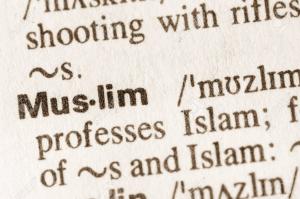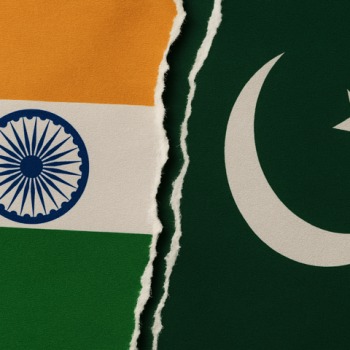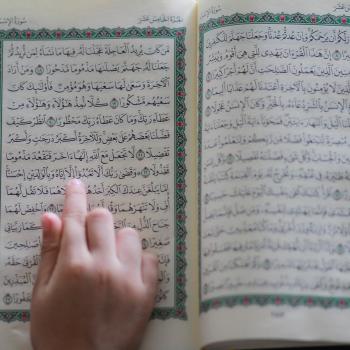by Imam Rizwan Khan
The Ahmadiyya Muslim Community has a long history of tolerance and is recognized the world over for its efforts at promoting peace, justice and harmony in society. Its charitable efforts span the globe and provide innumerable services in poverty and disaster stricken areas. Despite these well known realities there are some who bring fine theological points to accuse the community of intolerance and hate. Although it is impossible to point to a single practical instance that bears out such and accusation, it is still worth clarifying anything that may be misconstrued. The most often used of these arguments is that there are instances where Ahmadi Muslim scholars have referred to non-Ahmadi Muslims as disbelievers and non-Muslims.
The first part of this objection is, why have some Muslims been called disbelievers by Ahmadi Muslims?
Allah Almighty Himself says that a person can be a Muslim while not being a believer.
“The Arabs of the desert say, ‘We believe.’ Say, “You have not believed yet; but rather say, ‘We have accepted Islam,’ for the true belief has not yet entered into your hearts.”” (49:15)
The following Hadith is also narrated in Nasai,
“The Messenger of Allah (sa) distributed (some spoils of war) and gave to some people but withheld from others. I said: “O Messenger of Allah, you gave to so-and-so and so-and-so, and you withheld from so-and-so, who is a believer.” He said: “Do not say ‘a believer,’ say ‘a Muslim.'” Ibn Shihab (one of the narrators) said: “The Arabs of the desert say: ‘We believe’”.” (Nasai)
This concept was also explained by the Holy Prophet Muhammad (sa) elsewhere,”The one who commits an adultery/fornication is not a believer at the time of committing adultery/fornication and a thief is not a believer at the time of committing theft and a drinker of alcoholic drink is not a believer at the time of drinking.” (Bukhari and Muslim)
The Fourth Caliph of the Ahmadiyya Muslim Community explained this further, “The opposite of a believer is a disbeliever, and the opposite of a Muslim is a non-Muslim and in these two things God has placed a difference—for God says [to the Holy Prophet(sa)]: Tell them that God, Who is the Knower of the Unseen, has given me the knowledge that belief has not yet entered in your hearts. Therefore, do not claim to be mo’min [believer], but we do not take away your right to call yourselves Muslims.” (pg 5 here)
From the very beginning, Muslims who were weak of faith were referred to as disbelievers, and this did not infringe in any way on their right to call themselves Muslims. In the same manner as the Holy Quran and the Holy Prophet (sa) Ahmadi Muslims refer to some Muslims as disbelievers. This is nothing innovative in Islamic terminology.
In contrast, the blanket approach of Takfeer (declaring someone a non-believer) in vogue now can be considered an innovation. The second Caliph of the Ahmadiyya Muslim Community said, “We believe that the term Kafir applies to a person after he has passed beyond a prescribed limit. When a person takes Islam as his religion and accepts the Qur’anic injunctions and teachings as his guide of action, he is entitled to be called a Muslim. But if he denies a basic principle of the faith of Islam then although he may be called a Muslim yet in reality he is not so. We do not therefore take Kafir to mean that such a person denies the Holy Prophet Muhammad (peace be upon him). Who can say to a person who says that he believes in the Holy Prophet, that in reality he has no such faith? Nor do we take this term to mean the denial of the existence of God. One who says that he has belief in God, who can dare say that he has none? According to our definition of Kufr the denial of a fundamental doctrine of Islam renders a person Kafir. On the other hand only belief in all the essentials of Islam can make a person a true Muslim in the real sense of the word.” (April 26, 1935, pg.14)
 The second part of the question is, why have some Muslims been called non-Muslims by Ahmadi Muslims?
The second part of the question is, why have some Muslims been called non-Muslims by Ahmadi Muslims?
The answer is that there are two categories of non-Muslims.
First are those who outwardly are non-Muslims; this can even refer to innocent disbelievers. In this relation I again quote the second Caliph of the Ahmadiyya Muslim Community,
“Those who do not accept a prophet, even if it is only because they have never heard his name, they are referred to as disbelievers, although in the sight of God they are not deserving of punishment because their disbelief was not because of any fault of theirs.” (Ainae Sadaqat pg31)
Second are those who outwardly are Muslims but inwardly are not true Muslims.
The Second Caliph (ra) explained that there are different stages of the word Muslim, which has been explained in the renowned dictionary “Mufradat-i-Raghib on page 240, where Islam has been shown to be of two kinds: one lower than the stage of Iman; the other above the stage of Iman. In Dunal Iman, in the stage of lower than common Iman, are included people whose Islam remains at a level lower than a proper Iman, and in the stage of higher than the common Iman are Muslims who stand at a level of distinction in their faith, higher than the common level.”
By definition, there are two stages of Muslims, Dunal Iman (lower than common faith) and Fauqal Iman (higher than common faith). Those who are only Muslims in Dunal Iman are not Muslims in Fauqal Iman. These Muslims are referred to as non-Muslims in this context, but they are never deprived of their right to call themselves Muslims.
For example, the Holy Prophet (sa) said, “Where a man sallies forth to give support to an unjust person, knowing that he is unjust, the supporter thereby throws himself outside the bounds of Islam.” (Mishkat vol 2, Kitab-ul-Adab, Bab-u-Zulm, pg 555)
Also, the founder of the Ahmadiyya Muslim Community, the Promised Messiah (as) said, “Now let it be quite clear that these days the doctrine of some believers in the unity of God, that in species of birds, some are the creation of the Lord God, and some of Hadhrat Isa, is entirely misleading and idolatrous. The person who holds this view, without any doubt, is outside the pale of Islam.” (Ruhani Khazain vol 3 pg 252)
These stages of Islam become even more refined based on context. For example, one stage of submission, or Islam, is described as far above the category of faith by itself. The Holy Qur’an narrates about Hadhrat Ibrahim (as), “When his Lord said to him, ‘Submit,’ he said, ‘I have submitted to the Lord of the worlds.’” (2:132). Here, a great prophet of God, who is on the highest stages of faith, is commanded to attain the stage of Islam (or submission). However, in a different context, the Holy Qur’an uses this same word to refer to a stage that is far lower than faith when it says, “You have not believed yet; but rather say, ‘We have accepted Islam” (49:15). A person can be a non-Muslim in a certain context and a Muslim by another.
From the very beginning, the term Muslim has been used to refer at times to those who were the weakest of believers and at times those who were the strongest of believers. This never infringed in any way on their right to call themselves Muslims. The same way in which the Holy Qur’an and the Holy Prophet (sa) used the term Muslim, Ahmadi Muslims use the term Muslim. Having a nuanced approach to this term is nothing innovative in Islamic terminology. In fact, to insist on interpreting a use of the word Muslim in only a black and white way and without context goes against the established usage of this terminology throughout Islamic scripture.
When outward Muslims were referred to as disbelievers and non-Muslims by the Holy Prophet (sa) or the Promised Messiah (as) or Khulafa (ra), their right to be Muslims and call themselves Muslims was never encroached upon. The so-called Muslim scholars of today who try to deprive Ahmadi Muslims of their inalienable right to call themselves Muslims go against the teachings of Islam, and their declaring Ahmadi Muslims to be non-Muslims even in the Dunal Iman definition of the word has no precedence and is an innovation in Islam.
There is a telling difference between the position of non-Ahmadi Muslims and Ahmadi Muslims on Takfeer. When an Ahmadi Muslim is asked if non-Ahmadi Muslims should call themselves Muslims, we must say that not only do they have every right to call themselves Muslims, we insist that they do so. This is in perfect line with the precedent of the Holy Qur’an and Holy Prophet (sa) who gave the hypocrites and bedouins every right to identify as Muslims even though they were disbelievers and not true Muslims. However, when non-Ahmadi Muslims are asked if Ahmadi Muslims should call themselves Muslims, they say that we should not.
This is a position that has no precedence in Qur’an and Hadith, and this position is where they have deviated from the scriptures of Islam. Practically, this has resulted in the intolerant position of many Muslim clerics towards the Ahmadiyya Muslim Community. It is these same clerics who use these arguments to accuse this community of intolerance despite the evidence (see persecution of the Ahmadiyya Muslim Community in Pakistan and several other Muslim nations) pointing to the exact opposite. The Ahmadi-Muslim position on the other hand is perfectly in line with the peaceful and tolerant example of the Prophet Muhammad and is practically demonstrated in all of its actions.















